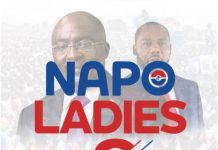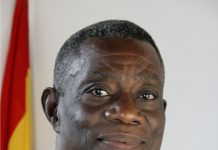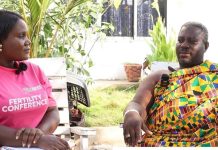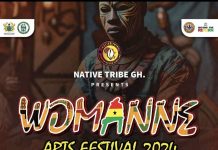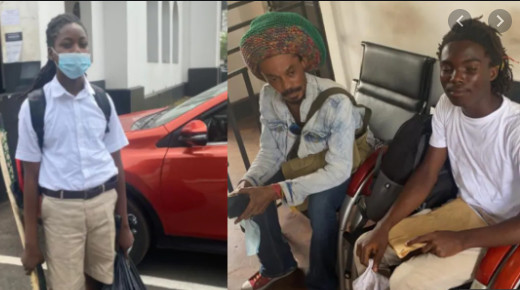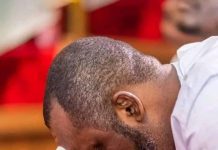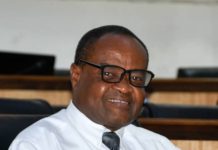The media space has since Friday been shuttling with a diverse opinion on the matter relating to the admission of the Rastafarian students into Achimota School for their senior high education. This subject of tensioned public interest has resulted in the Ghana Education Service (GES), National Association of Graduate Teachers (NAGRAT), management of Achimota School and other interest individuals/groups issue orders and counter directives amongst others.
Understandably the heightened concern touches on issues relating to equality and non-discrimination before the law, educational rights, children’s rights, cultural rights and practices, and Freedom of religion. Clearly, this is a matter that deals with the interpretation of the Constitution of which the Supreme Court has exclusive original jurisdiction. All I express is but my view on the issue.
Equality and non-discrimination before the law
At the heart of international human rights law lays the principles of equality and non-discrimination. They are the only human rights provisions explicitly included in the UN Charter which appears almost at the beginning of every human rights instrument. Article 1 of the Universal Declaration of Human Rights proclaims that:
“All human beings are born free and equal in dignity and rights”.
Articles 2 and 7 of the Declaration further portend that rights are fundamental and generally granted to everyone without discrimination of any kind (such as race, colour, sex, language, religion, political or other opinion, national or social origin, property, birth or other status)
The 1992 Constitution of the Republic of Ghana [the Constitution] guarantees equality and non-discrimination of all persons. The preamble to the Constitution provides
“IN EXERCISE of our natural and inalienable right to establish a framework of government which shall secure for ourselves and posterity the blessings of liberty, equality of opportunity and prosperity;”
The Constitution ensures the protection of fundamental human rights and freedom. Article 12 (2) of the Constitution provides that:
“Every person in Ghana, whatever his race, place of origin, political opinion, colour, religion, creed or gender shall be entitled to the fundamental human rights and freedoms of the individual contained in this Chapter but subject to respect for the rights and freedoms of others and for the public interest.”
Further, Articles 17 and 35 of the Constitution extensively provides for equality and freedom from discrimination. For instance, Article 17 (2) states that
“A person shall not be discriminated against on grounds of gender, race, colour, ethnic origin, religion, creed or social or economic status.”
Article 35 (5) also specifies that
“The State shall actively promote the integration of the peoples of Ghana and prohibit discrimination and prejudice on the grounds of place of origin, circumstances of birth, ethnic origin, gender or religion, creed or other beliefs.”
The Constitution is quite clear when it comes to equality and non-discrimination before the law and amplifies it without ambiguity. Every person in Ghana, whatever his religion shall be entitled to the fundamental human rights and shall not be discriminated against on grounds of religion etc.
Educational Rights
It must be stressed that Education remains a right and not a privilege. The International Covenant on Economic, Social and Cultural Rights (ICESCR) of the United Nations Human Rights devotes two articles, 13 and 14, to the right to education and underscores that education in all its forms and at all levels shall exhibit availability, accessibility, acceptability and adaptability. The right to education is a human right and underpins the Sustainable Development Goal 4 Education 2030 Agenda.
Article 25 (1) of the Constitution provides for educational rights and specifies that
“All persons shall have the right to equal educational opportunities and facilities and with a view to achieving the full realization of that right”.
It is noteworthy that Article 25 affirms that “All persons shall have the right to equal educational opportunities“(emphasis added)
Children’s rights
The Constitution in Article 25 provides for children’s rights. Subsection (5) describes a child as a person below the age of eighteen. Children are enjoined to be protected and not be subject to torture or degrading treatment or punishment. Subsection (4) provides that
“No child shall be deprived by any other person of medical treatment, education or any other social or economic benefit by reason only of religious or other beliefs”.
This provision asserts that No child shall be deprived by any other person of education or any other by reason only of religious or other beliefs (emphasis added)
Cultural rights and practices
Subject to the provisions of the Constitution, the law enjoins every person to enjoy, practise, profess, maintain and promote any culture, language, tradition or religion in Article 26 (1). Every person is entitled to enjoy, practise, profess, maintain and promote any religion (emphasis added). Apart from cultural rights and practices, the Constitution also deals with freedom of religion.
Freedom of religion
Under general fundamental freedoms, the Constitution provides for the freedom of religion. In Article 21 (1) (c) it states that
“(1) All persons shall have the right to –
(c) freedom to practise any religion and to manifest such practice;”
It must be noted that Rastafarianism is an Africa-centred religion which developed in Jamaica in the 1930s. The wearing of hair in dreadlocks by Rastafarians is believed to be spiritual and inspired by the Nazarites in the Bible.
Situating the instant case of the Rastafarian students to the position of the law one can comfortably conclude that they [the students] shall have the right to equal educational opportunities and that none of them shall be deprived by any other person of education or any other by reason only of religious or other beliefs. Further, they are entitled to enjoy, practise, profess, maintain and promote any religion and that they shall have the right to freedom to practise any religion and to manifest such practice.
Deprivation of Personal Liberty
It is however important to note that while these fundamental freedoms are enshrined in the Constitution, the Constitution also strongly provides for the protection of personal liberty of children. In Article 14 (1) (e) the law state that
“(1) Every person shall be entitled to his personal liberty and no person shall be deprived of his personal liberty except in the following cases and in accordance with procedure permitted by law –
(e) for the purpose of the education or welfare of a person who has not attained the age of eighteen years; or”
The law expressly provides that while every person is entitled to his personal liberty, children (persons less than 18 years) may be deprived of their personal liberty for the purpose of their education or welfare. This provision clearly accounts for the reason why parents, for instance, in ensuring the welfare of their children, may restrict the children’s freedom of movement and some other freedoms enshrined in the Constitution.
In the senior high schools for example, by reason of this provision, the students are obliged to apply for exeats/absits (which may be approved or denied by the school authority) before a student can freely move out of school. Students are made to sleep at a particular time, eat at a particular time etc.
This means that while a person may have rights; such liberties of the person may be deprived for the purpose of their education or welfare as stated in the Constitution. To this end, the schools as a training institution have regulations aimed at providing for the welfare, training and instilling discipline among the students.
Absolute Rights
It must be pointed out strongly that International human rights law identifies some rights as absolute while other rights may have some reasonable limits placed on them.
Rights may be distinguished as either derogable or non-derogable. The International Covenant on Civil and Political Rights (ICCPR) provides for a derogation power in Article 4 which permits governments to provisionally suspend the application of certain rights in exceptional circumstance of ‘state of emergency’ and other situations. In Ghana for instance we recently witnessed the imposition of restriction of movement in the heat of the COVID-19 pandemic.
Non-derogable rights such as right to life, freedom from slavery and servitude, freedom from torture or cruel, inhuman and degrading treatment or punishment; freedom of thought, conscience and religion may either be absolute or non-absolute. Even though non-derogable rights cannot be suspended, the ICCPR provide for some limitations in their application. The right to freedom of religion for instance in Article 18 of the ICCPR is non-derogable. However in article 4(2) which states:
“No derogation from articles 6, 7, 8 (paragraphs I and 2), 11, 15, 16 and 18 may be made under this provision”
it may be subject to limitations in accordance with Article 18(3)
“Freedom to manifest one’s religion or beliefs may be subject only to such limitations as are prescribed by law and are necessary to protect public safety, order, health, or morals or the fundamental rights and freedoms of others”
Same can be said about Article 6 which deal with the right to life. It must be noted that some necessary, reasonable and proportionate circumstance may justify the taking of someone’s life. (www.ag.gov.au)
Jamaican Case
In Jamaica, where Rastafarianism developed, the Supreme Court in a recent case of Dale Virgo and ZV v Board of Management of Kensington Primary School, Minister of Education and Attorney General of Jamaica [2020] JMFC in a unanimous decision held that a school policy prohibiting dreadlocks as a hairstyle does not violate constitutional rights, including to self-expression, of the child. The parents of a minor child were informed by the school that unless they cut the child’s locked hair her admission to the school would be revoked because the school had a policy of “no braids, no beads, no locking of hair”.
In paragraph 155 of the judgment, the Court declared that an individual cannot vary the rules of an institution simply because it does “not fit in with their choices and mode of self-expression”. The court held that the school’s policy of “no braids, no beads, no locking of hair” was not an infringement of the child’s right to freedom of expression.
It must be pointed out that there is an exception in Jamaica law to the policy on the grounds of religion, which the parents failed to disclose to the school. The case was therefore not about the right of Rastafarian children to wear dreadlocks to school.
Under section 17 (4) on the protection of freedom of religion in the Jamaica Constitution 1962 with Amendments through 2015, the law unequivocally provides that
“No person attending any place of education, except with his own consent (or, if he is a minor, the consent of his parent or guardian) shall be required to receive religious instruction, or to take part in or attend any religious ceremony or observance, which relates to a religion or religious body or denomination other than his own.”
Undoubtedly, in Jamaica, the rights of a child regarding religious liberty at any level of education is allowed and not deprived. The case is not entirely the same in Ghana.
In my view some right which are non-derogable can be limited. While the relevance of the policy on a child’s hairstyle etc. may be a subject of further discussion, Achimota School’s policy to disallow the Rastafarian minor students to wear dreadlocks does not infringe on the rights of the students. As much as has been the practice of schools being to a large extent tolerating religious rights, these liberties must conform to the regulations of the respective schools. The regulations in my opinion must take cognizance of the Constitution and should not unreasonably be at variance with relevant laws. This position is fortified by Article 14 (1) (e) which deprives a child his personal liberty for the purpose of education or welfare.
Harold Boateng
Accra, Ghana
Social Commentator
boateng.harold@gmail.com





